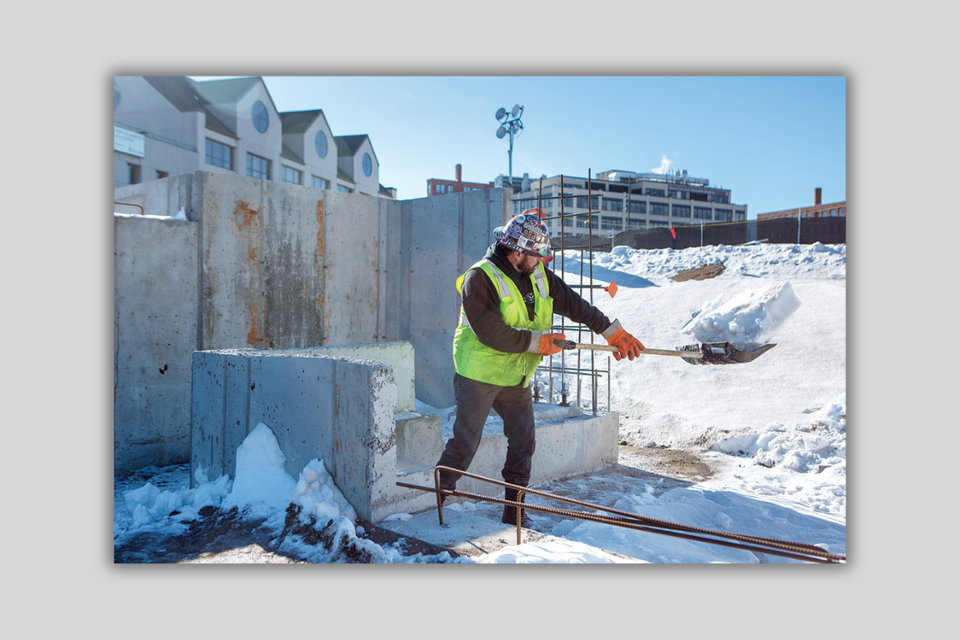Preparing for Winter Work
Working outside in the winter can be a dirty job, but many jobs require it. Are you ready for winter work?
Frostbite & Hypothermia
Both frostbite and hypothermia can occur at higher temperatures than many people realize. For example, skin can start to freeze at 28 degrees Fahrenheit and deep frostbite can cause blood clots and even gangrene. Cape Cod is known for very cold, snowy, wet, and windy winters starting in December through March. During January, the coldest month of the year here on the Cape, the average daily temperature is a low of 27°F and high of 38°F.
Hypothermia can be a fatal condition caused by extreme loss of body temperature. Symptoms include:
- Fatigue
- Nausea
- Confusion
- Lightheadedness
- Profuse sweating
Dress Accordingly
Layers help keep you warmer than a single layer of heavy clothes. Remove layers as necessary to prevent overheating and perspiring.
Wear a hat and you’ll stay much warmer when working in cold conditions. Protect your ears from frostbite by wearing a hat that will cover your ears or using earmuffs.
Gloves should have enough insulation to keep you warm and prevent frostbite, but be thin enough so you have the dexterity to manipulate controls or use tools. Gloves that are too thick can make your hands and wrists work too hard trying to hold on to objects, potentially causing repetitive strain injury.
Your shoes or boots should have adequate thread to help prevent slips and falls on wet, snowy, or icy surfaces. For extremely slipper situations, you can attach clogs or cleats to your footwear. Slow down when walking across slippery surfaces and be especially careful on ladders, platforms, and stairways.
These help keep you neck warm in the cold weather, but they be extra cautious when working with rotating machinery. Always check your winter wardrobe for entanglement hazards such as loose sleeves and dangling drawstrings.
Winter Safety Tips
Investigate anti-fog coatings and wipes to see if these products are appropriate for your eyewear. If you keep taking off your safety eyewear because it fogs up, it isn’t protecting you.
Cold weather can strain your heart, even if you aren’t overexerting yourself, so be sure to pace yourself when lifting heavy objects, shoveling snow, or performing heavy work tasks. Take frequent breaks for rest and to warm up.
70% of deaths during snow or ice storms occur in vehicles. Be prepared for snow and ice hazards on the road. Carry jumper cables, blankets, matches, a snow shovel, sandbags, a flashlight, and non-perishable food, just in case a winter storm strands you in your vehicle.
Sources: Kodiak Building Partners
